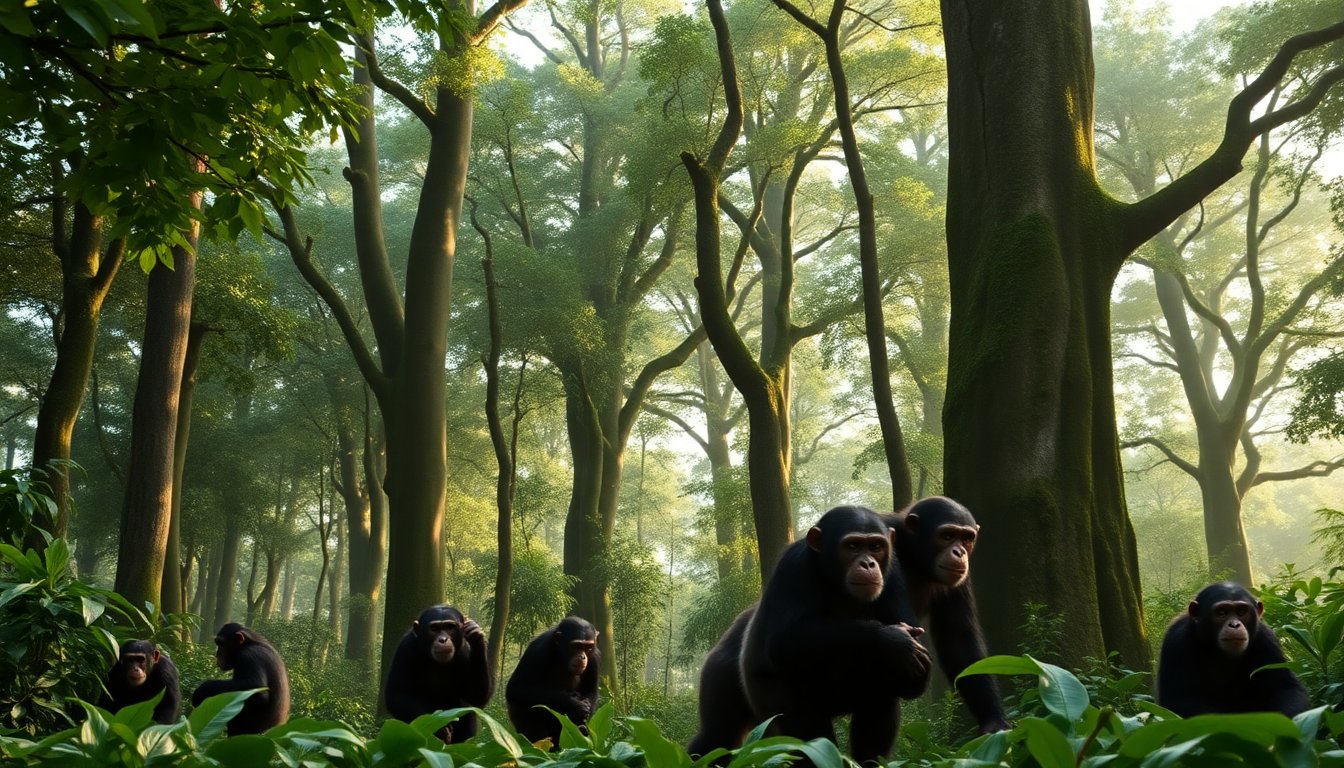Table of Contents
On Wednesday, the world mourned the loss of Jane Goodall, a renowned figure in conservation, who died at 91. Her legacy as a scientist and advocate will resonate, especially through her influential work with chimpanzees. The Jane Goodall Institute confirmed her passing, stating she succumbed to natural causes.
Goodall’s pioneering spirit and unwavering dedication to understanding primate behavior transformed the scientific community’s approach to wildlife conservation. Her journey from a quiet coastal village in England to the jungles of Africa reflects a profound commitment to both ethology and the preservation of our planet.
The journey of a conservation icon
Jane Goodall’s groundbreaking research
Jane Goodall’s fascination with animals began in childhood, shaping her interest in the natural world. This passion led her to become a leading primatologist. In the early 1960s, she began her seminal research in Gombe Stream National Park, Tanzania. Her observations of chimpanzees changed how we view these creatures forever.
Impact on animal behavior understanding
Goodall’s detailed studies demonstrated that chimpanzees engage in complex social behaviors. They use tools, display emotional depth, and maintain intricate family structures. This challenged the long-held belief in human uniqueness within the animal kingdom. Her findings offered new perspectives on chimpanzees and our relationship with nature. Goodall’s work inspired a new generation of female scientists, including the well-known Dian Fossey.
Advocacy and public engagement
Beyond her scientific achievements, Jane Goodall emerged as a passionate advocate for environmental conservation. Through her collaboration with the National Geographic Society, she brought the captivating lives of chimpanzees into homes worldwide via documentaries, magazines, and television. This partnership significantly raised public awareness about the plight of wildlife and the importance of maintaining biodiversity.
Goodall’s efforts extended beyond awareness-raising; she actively fought for the protection of chimpanzee habitats, emphasizing the critical role humans play in environmental stewardship. Her initiatives included community-centered projects aimed at promoting sustainable practices and wildlife conservation across Africa.
Lasting impact and legacy
Throughout her life, Jane Goodall’s influence reached well beyond the confines of academia. Her dedication to conservation and animal welfare sparked a global movement, urging individuals to take action within their own communities. She founded the Jane Goodall Institute, which emphasizes wildlife research, education, and community-focused conservation efforts.
Goodall’s philosophy of “Roots & Shoots” encourages youth to engage actively in conservation initiatives. This program has inspired numerous young individuals to become advocates for the environment. By fostering empathy towards animals and the natural world, she has instilled a profound sense of responsibility in future generations.
Inspiring future generations
The legacy of Jane Goodall
Jane Goodall’s passing marks a significant moment in the history of conservation. Her extensive body of work and the countless lives she influenced will endure. Goodall’s life reminds us of the critical need for ongoing conservation efforts and the protection of our planet’s biodiversity.
Conservation in a changing world
As climate change and habitat destruction increasingly threaten wildlife, Goodall’s message of hope and resilience resonates strongly. While the world has lost a pioneering scientist, Jane Goodall’s legacy of compassion and activism continues to inspire action to cherish and protect our natural world.


